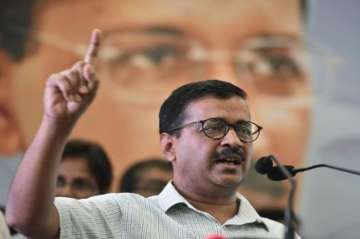Kejriwal 3.0: Journey of a bureaucrat-turned activist to Delhi Chief Minister
Arvind Kejriwal is set to take oath as Delhi Chief Minister for the third time today. Kejriwal's swearing-in is taking place at Delhi's Ramlila Maidan. Ahead of Kejriwal's oath-taking ceremony, let's take a look at Kejriwal's political journey that made him a people's leader.
AAP convener Arvind Kejriwal is all set to take oath as Delhi Chief Minister for the third time and begin AAP's 3.0 journey in the national capital. AAP contested on all 70 seats in the Delhi Assembly elections 2020 and won 62 seats to storm back to power with a thumping majority.
One of the key reasons why AAP government retained its popularity is Kejriwal's popularity as a common man leader, the work done by his government in revamping Delhi government schools under Manish Sisodia who was also the education minister and social schemes like free electricity, water, metro rides for Delhi residents.
As Kejriwal-led AAP government is set to begin its 3.0 journey, here's a look at some facts about common man's leader
- Kejriwal's appearance in public life began in 2010 as an anti-corruption activist when he protested against various scams in the then Congress-led UPA government.
- Under the leadership of Anna Hazare, Kejriwal launched public campaigns along with other anti-corruption activists including former cop Kiran Bedi and advocated for Jan Lokpal Bill and Lokayuktas in states to fight corruption.
- Kejriwal formed India Against Corruption (IAC) group and demanded enactment of the Jan Lokpal Bill.
- The anti-corrupiton campaign-led by Kejriwal and others brought a sea change in country's politics with the active participation of the youth.
- The then Congress-led government National Advisory Council drafted a Lokpal Bill, however, it was criticised by Kejriwal and other activists who argued that the bill did not have enough powers to take action against the prime minister, other corrupt officeholders and the judiciary.
- Kejriwal intensified their protests under the leadership of Anna Hazare and launched massive hunger strike.
- The movement initiated the era of public debates advocating the need for an anti-corruption bill that could hold leaders including Prime Minister, others accountable for corruption.
- In January 2012, the then UPA government backtracked on framing a strong Jan Lokpal that further fueled anti-corruption campaign led by Kejriwal, other activists.
- In 2012, when discussions on forming an alternative party to fight corruption began in public domain, the face of the campaign Anna Hazare did not pay much heed towards it. It was then Kejriwal took up the charge and emerged as the face of anti-corruption campaign with the view that if they wanted to change the system, then they will have to be in the system.
- AAP made its election debut in the 2013 Delhi Assembly election and emerged as the second-largest party, winning 28 of the 70 seats. It formed a minority government with a single point agenda to swiftly introduce the Jan Lokpal bill in Delhi.
- However, the AAP government resigned after serving for 49 days when it realised that other major parties were not supporting the Jan Lokpal bill.
- But in 2015 Delhi elections, AAP grabbed 67 of the 70 seats in the assembly and stormed back to power. During its full-five year term, the AAP government worked to improve the conditions of Delhi government schools, establishing Mohalla Clinics, curbing corruption and launching social welfare schemes like free electricity, water and bus-Metro rides.
- In 2020 Delhi elections, the Aam Aadmi Party won 62 out of the 70 seats and is set to form the government for the third consecutive time.
- Kejriwal has been IITian, worked the Indian Revenue Service (IRS) as an Assistant Commissioner of Income Tax in 1995, after qualifying for Civil Services.
- Born on 16 August 1968, Kejriwal was awarded the Ramon Magsaysay Award for Emergent Leadership in recognition of his involvement in the grassroots level movement Parivartan using right to information legislation in a campaign against corruption.
- Kejriwal donated his Magsaysay award money as a corpus fund to found the Public Cause Research Foundation, a non-governmental organisation (NGO).
ALSO READ: Kejriwal 3.0: Journey of a bureaucrat-turned activist to Delhi Chief Minister
ALSO READ: 50 'special guests' to share stage with Arvind Kejriwal on Sunday
